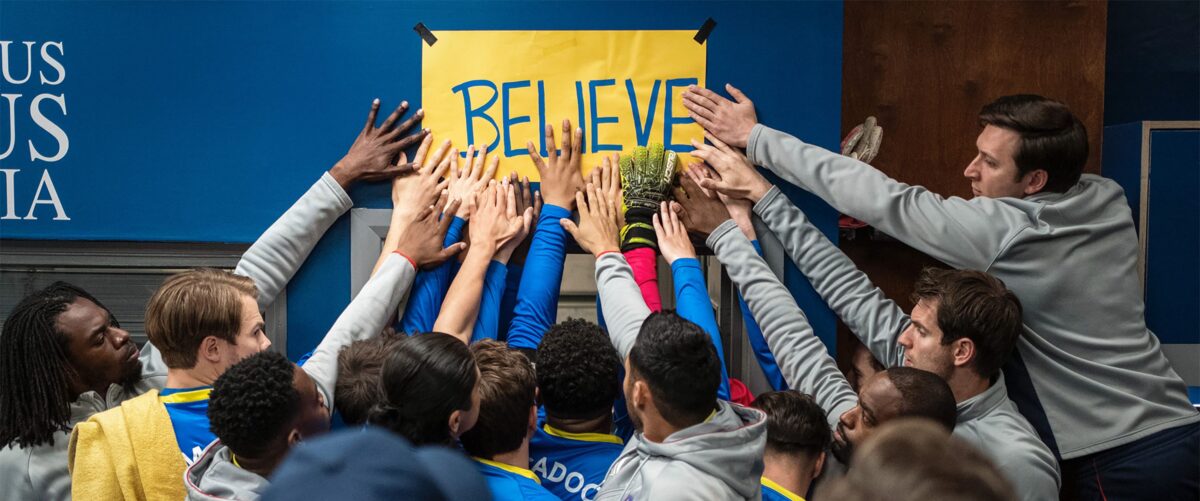The popular TV series “Ted Lasso” has captivated audiences worldwide with its heartwarming story and compelling characters. While the show revolves around an American football coach navigating the world of English soccer, there are invaluable lessons that basketball coaches can learn from Ted Lasso’s coaching style and philosophy. This article delves into the wisdom imparted by the show and explores how basketball coaches can apply these lessons on the court.
Building Relationships and Fostering Positivity
Ted Lasso firmly believes in the power of relationships and creating a positive environment. As he eloquently puts it, “Be curious, not judgmental.” Basketball coaches can adopt this approach by building strong connections with their players and promoting a supportive atmosphere. By genuinely caring for their players and fostering a positive team culture, coaches can motivate their athletes to give their best effort.
Recommended reading: “The Power of Positive Leadership” by Jon Gordon.
Embracing Emotional Intelligence
Ted Lasso’s emotional intelligence is a defining characteristic that sets him apart as a coach. He recognizes the significance of understanding his players’ emotional states and providing support when needed. As he wisely states, “I believe in hope, I believe in believe, and I believe in a fourth thing called ’emotional courage’.” Basketball coaches can enhance their coaching by developing emotional intelligence skills, actively listening to their players, and offering guidance when it matters most. This empathetic approach can strengthen the bond between coaches and players and improve overall team dynamics.
Recommended reading: “Emotional Intelligence” by Daniel Goleman.
Adapting to Individual Personalities and Styles
Ted Lasso encounters a diverse group of players with distinct personalities and playing styles. Instead of imposing his own methods, he embraces each player’s uniqueness and finds ways to work with their strengths. As he wisely advises, “You’re gonna make mistakes, and you’re gonna make ’em because guess what? Holding on to mistakes is how you get ’em.” Basketball coaches can follow suit by recognizing that each player responds differently to coaching. By adapting their strategies and communication styles to suit individual players, coaches can create a more inclusive and effective coaching environment.
Recommended reading: “The Culture Code” by Daniel Coyle.
Prioritizing Team Cohesion and Collaboration
Ted Lasso places a strong emphasis on team cohesion and collaboration. He understands that success in sports often hinges on effective teamwork and synergy. As he succinctly puts it, “It’s not about X’s and O’s, it’s about hearts and minds.” Basketball coaches can integrate this principle by emphasizing the importance of team unity, encouraging open communication and trust among players, and fostering a collective sense of responsibility for the team’s success. By promoting a culture of collaboration, coaches can help their teams reach their full potential and achieve better results.
Recommended reading: “The Captain Class” by Sam Walker.
Balancing Competition and Sportsmanship
While Ted Lasso appreciates the value of winning, he never compromises on sportsmanship and character. He believes in the power of good sportsmanship and respectful behavior both on and off the field. As he wisely states, “I’d rather lose doing the right thing than win doing the wrong thing.” Basketball coaches can learn from this by instilling in their players the values of fair play, respect for opponents, and maintaining a positive attitude regardless of the outcome. By prioritizing character development alongside skill development, coaches can nurture athletes who embody the virtues of integrity and sportsmanship.
Recommended reading: “The Score Takes Care of Itself” by Bill Walsh.
Ted Lasso’s coaching philosophy offers invaluable insights for basketball coaches seeking to enhance their coaching methods and create a positive and successful team environment. By focusing on building relationships, developing emotional intelligence, adapting to individual players, fostering team cohesion, and emphasizing sportsmanship, coaches can create an environment that encourages player growth and maximizes team potential. Ultimately the lessons from Ted Lasso extend beyond the realm of fiction, offering a roadmap for coaches to inspire and lead their teams to new heights.
“Barbecue Sauce”




Leave a Reply